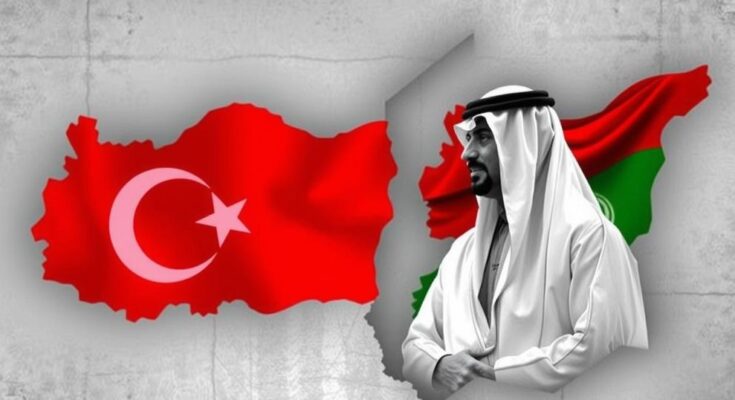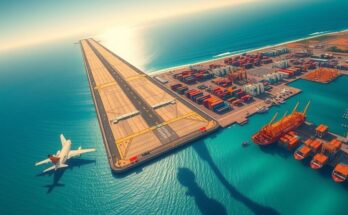Turkey is actively seeking the support of Saudi Arabia and the UAE to stabilize Syria post-Assad regime collapse. Turkish officials emphasize the necessity for regional cooperation and a neutral Syrian government, highlighting the complexities posed by groups like HTS and the ongoing Russian presence. Furthermore, the potential for Gulf nations to participate in Syria’s reconstruction is crucial for future governance.
In light of recent developments in Syria following the swift collapse of Bashar al-Assad’s regime, Turkey is strategically seeking the collaboration of Saudi Arabia and the United Arab Emirates (UAE) to play a significant role in reshaping Syria’s future. Turkish officials are well aware of the lessons from the Arab Spring and recognize the necessity of regional and international support to ensure stability in the war-torn nation. President Recep Tayyip Erdogan aims to engage with Gulf nations to garner support, considering their concerns towards Islamist groups like the Muslim Brotherhood as crucial for formulating a viable strategy for Syria.
Erdogan is slated to discuss the situation in Syria during an upcoming summit with Egyptian President Abdel Fattah el-Sisi. This dialogue is pivotal given Sisi’s known opposition to Islamist factions and unease regarding the rise of Hay’at Tahrir al-Sham (HTS) in Syria. Despite Turkey’s historical denial of direct support to HTS, it is clear that Turkish influence plays a substantial role in the dynamics of the region.
Turkish Foreign Minister Hakan Fidan recently acknowledged Turkey’s in-depth understanding of HTS, further asserting military and logistical backing to facilitate stability in Syria. Additionally, Turkey has coordinated with several international partners to advocate for a governance structure that is inclusive, non-sectarian, and respects human rights, while fostering a neutral stance that mitigates threats to adjoining countries.
Fidan emphasized that Turkey’s goal is to nurture a Syria that does not endanger its neighbors, explicitly calling on Israel to cease air strikes on Syrian territory. A significant point of discussion includes establishing a new regional order that fosters cooperation among regional powers, thereby averting dominance by any single nation, be it Iranian or Turkish.
Efforts to rekindle relationships with Gulf nations, particularly the UAE, have notably altered perspectives on Syria among Gulf leaders, implying a potential shift in support towards reconstruction and investment in the nation’s economy. Turkish officials acknowledge that funding from both Gulf and Western powers, especially the EU, will be essential for Syrian reconstruction initiatives.
However, the presence and influence of Russia in Syria complicate these dynamics. European demands for Russian withdrawal stand as a sizable obstacle to international involvement. Nonetheless, Ankara hopes for a collective acknowledgment from Moscow and Tehran towards HTS-led governance, encouraging contributions towards stabilization.
The ongoing conflict in Syria has drawn in multiple regional and international powers, with varying interests and influences. Following the turbulent Arab Spring, Turkey has shifted its approach by seeking allies in the Gulf, notably Saudi Arabia and the UAE, to counterbalance the shifting political landscape. The complexities of the Syrian civil war, particularly with the rise of Islamist factions and the involvement of Russia, necessitate a coordinated effort for rebuilding and stabilizing the region. This myriad of actors reflects the broader geopolitical implications intertwined with local governance issues in Syria.
In conclusion, Turkey’s strategic outreach to Saudi Arabia and the UAE seeks to collaboratively shape a stable future for Syria amidst complex geopolitical challenges. The emphasis on a neutral governance structure, cooperation among regional powers, and a clear stance against external dominance are central to Ankara’s strategy. However, the ongoing influence of Russia and the need for substantial financial support remain hurdles that must be navigated to facilitate Syria’s reconstruction and long-term stability.
Original Source: www.middleeasteye.net




